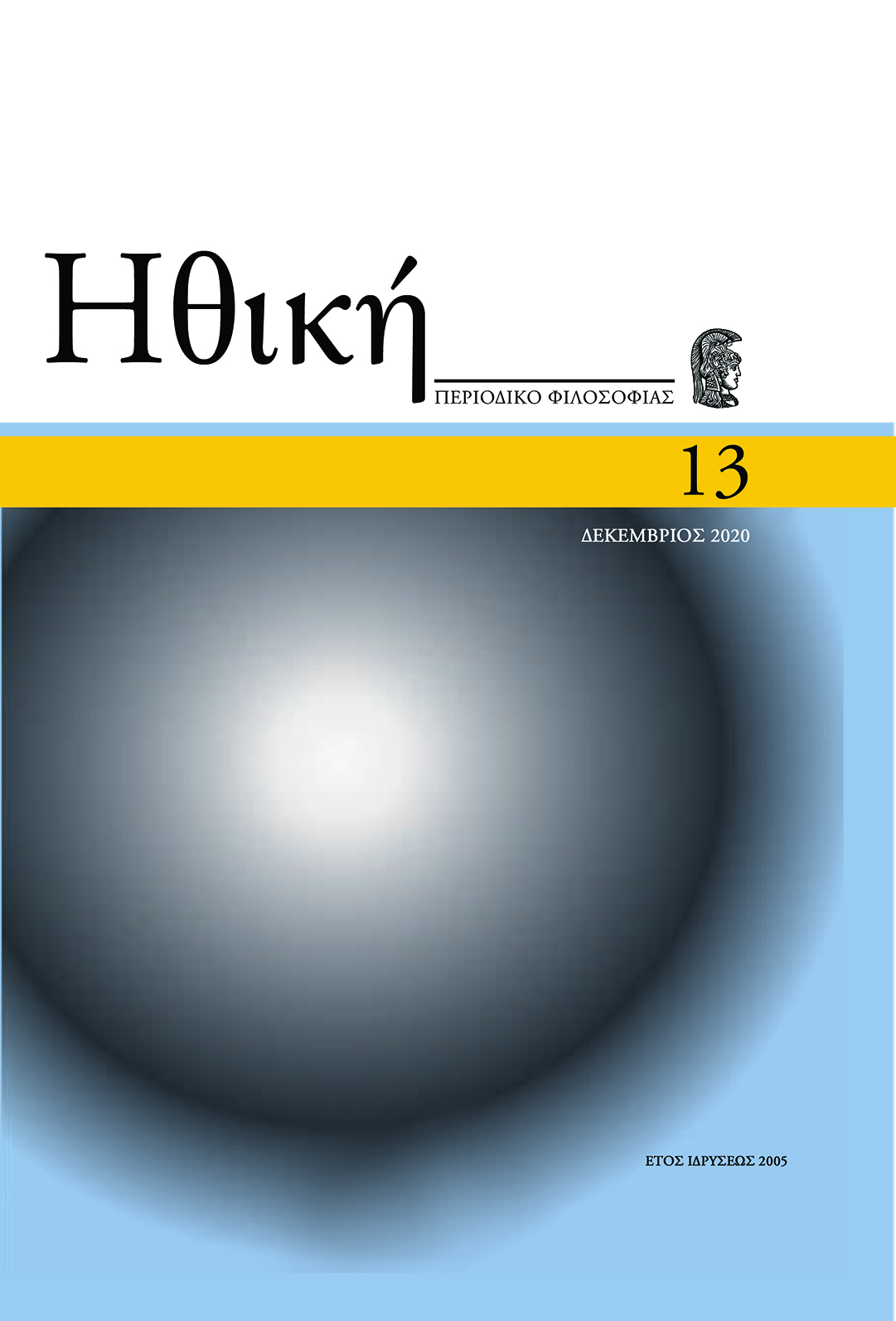Genetic engineering and gene manipulation: the right (of future generations) to surprise

Δημοσιευμένα:
Jan 28, 2021
Λέξεις-κλειδιά:
positive eugenics Hans Jonas Hannah Arendt Jürgen Habermas natality enhancement surprise
Περίληψη
Genetic engineering is currently at the forefront of biotechnological innovation and aspires to change once and for ever the way we understand and handle human nature. Especially the growth of Eugenics makes us visualise a different world, where humanity will not only dispense itself from the detrimental gene mutations that are accountable for fatal illnesses, but will also ameliorate through prenatal gene manipulation. In the first part of this paper, I will introduce the responsibility-oriented morality of Hans Jonas, who supports vividly all efforts of negative Eugenics but seems sceptical about genetic enhancement, since on the one hand we have no right to decide on behalf of our descendants on what is best for them, and on the other due to his view that the abundance of our genetic stock should not hang on parents’ desires. In the second part, I will correlate these oppositions with Hannah Arendt’s concept of “natality”. Not only do Jonas and Habermas invoke it with applause; “natality” also discloses the very essence of birth, namely that each newborn epitomises total unpredictability and promises to renew human affairs. So, gene manipulation for enhancement purposes seems to encroach on “natality’s” dominion and diminish future autonomy. Finally, I will argue that, if Arendt’s conceptual frame consolidates objections to positive Eugenics, each unborn child holds a right to surprise, the content of which is not limited to an individual level but touches society and humanity.
Λεπτομέρειες άρθρου
- Πώς να δημιουργήσετε Αναφορές
-
Chorianopoulou, M. K. (2021). Genetic engineering and gene manipulation: the right (of future generations) to surprise. Ηθική. Περιοδικό φιλοσοφίας, (13), 22–30. https://doi.org/10.12681/ethiki.25964
- Τεύχος
- Αρ. 13 (2020)
- Ενότητα
- Άρθρα
Οι Συγγραφείς που δημοσιεύουν εργασίες τους σε αυτό το περιοδικό συμφωνούν στους παρακάτω όρους:
- Οι Συγγραφείς διατηρούν τα Πνευματικά Δικαιώματα και χορηγούν στο περιοδικό το δικαίωμα της πρώτης δημοσίευσης ενώ ταυτόχρονα τα πνευματικά δικαιώματα της εργασίας προστατεύονται σύμφωνα με την Creative Commons Attribution License που επιτρέπει σε τρίτους - αποδέκτες της άδειας να χρησιμοποιούν την εργασία όπως θέλουν με την προϋπόθεση της διατήρησης των διατυπώσεων που προβλέπονται στην άδεια σχετικά με την αναφορά στον αρχικό δημιουργό και την αρχική δημοσίευση σε αυτό το περιοδικό.
- Οι Συγγραφείς μπορούν να συνάπτουν ξεχωριστές, και πρόσθετες συμβάσεις και συμφωνίες για την μη αποκλειστική διανομή της εργασίας όπως δημοσιεύτηκε στο περιοδικό αυτό (π.χ. κατάθεση σε ένα ακαδημαϊκό καταθετήριο ή δημοσίευση σε ένα βιβλίο), με την προϋπόθεση της αναγνώρισης και την αναφοράς της πρώτης δημοσίευσης σε αυτό το περιοδικό.
- Το περιοδικό επιτρέπει και ενθαρρύνει τους Συγγραφείς να καταθέτουν τις εργασίες τους μέσω διαδικτύου (π.χ. σε ένα ακαδημαϊκό καταθετήριο ή στους προσωπικές τους ιστοσελίδες) πριν και μετά από τις διαδικασίες της δημοσίευσης, καθώς αυτό μπορεί να οδηγήσει σε παραγωγική ανταλλαγή ιδεών και σκέψεων καθώς επίσης και σε γρηγορότερη και μεγαλύτερη χρήση και ευρετηρίαση της δημοσιευμένης εργασίας (See The Effect of Open Access).
Λήψεις
Τα δεδομένα λήψης δεν είναι ακόμη διαθέσιμα.
Αναφορές
Arendt, Hannah. The Human Condition. Chicago: The University of Chicago Press, 19982.
Burley, Justine and Harris, John. Introduction to A Companion to Genethics, ed. Justine Burley and John Harris. Blackwell Companions to Philosophy. Oxford, Victoria: Blackwell Publishing, 2004.
Habermas, Jürgen. The Future of Human Nature. Cambridge: Polity Press, 2003.
Jonas, Hans. “The burden and blessing of mortality.” The Hastings Center Report 22 (1992): 34-40.
Jonas, Hans. “Biological Engineering – A preview.” In Hans Jonas, Philosophical Essays: From Ancient Creed to Technological Man, New Jersey: Prentice Hall, 1974.
Jonas, Hans. "The Imperative of Responsibility." In Search of an Ethics for the Technological Age, Chicago and London: The University of Chicago Press, 1984.
Jonas, Hans. “Towards an ontological grounding of an ethics for the future”. In Mortality and Morality. A search for the Good after Auschwitz, edited by Lawrence Vogel, Illinois: Northwestern University Press, 1996.
Kant, Immanuel. Critique of Practical Reason. Edited and translated by Mary Gregor, introduction Andrews Reath. Cambridge: Cambridge University Press, 2015.
McGee, E. Glenn. The Perfect Baby: Parenthood in the New World of Cloning and Genetics. Oxford: Rowman and Littlefield Publishers, 2002.
McGee, E. Glenn. “Pragmatism and human genetic engineering.” PhD diss., University of Vanderbilt, 1994.
Sandel, J. Michael. The Case Against Perfection. Ethics in the Age of Genetic Engineering. Massachusetts and London: Harvard University Press, 2007.
Tirosh-Samuelson, Hava and Wiese, Christian, ed. The legacy of Hans Jonas. Judaism and the Phenomenon of Life. Leiden-Boston: Brill, 2008.


